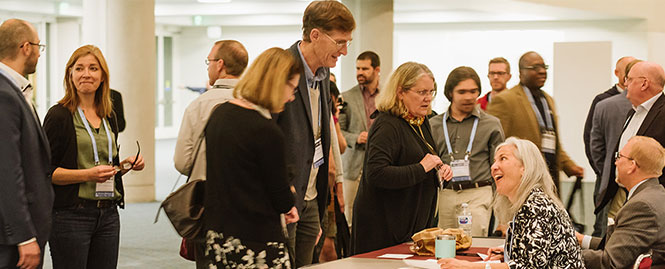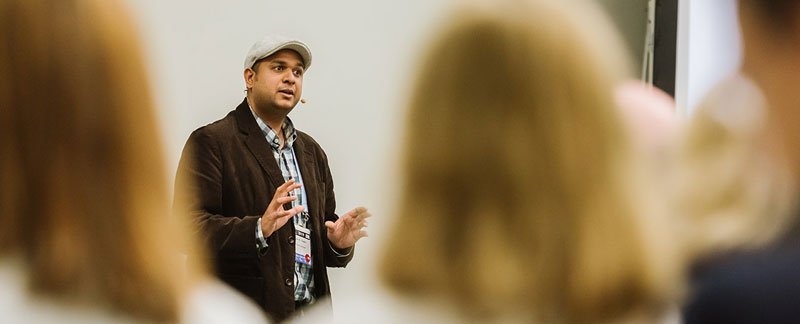9:00 to 11:00 am
11/17/2023
Conference Room 8
The 2023 session will focus on the so-called Christ hymn of Philippians 2, analyzing the text and language from multiple theoretical perspectives to showcase the value and implications of different linguistic theories. For more information, contact Elizabeth Robar ([email protected]) and Will Ross ([email protected]).
Elizabeth Robar, Cambridge Digital Bible Research, Presiding
Yan Ma, McMaster Divinity College
A Register Analysis of Phil. 2:6–11 (25 min)
Lindsey L. Croston, University of Aberdeen
A Cognitive Linguistics Exegetical Analysis of Phil. 2:6–11 (25 min)
Gregory P. K. Richardson, Redemption Seminary
The Christ Hymn versus Artificial Intelligence: A Case Study of AI and Its Place in Biblical Scholarship (25 min)
Fredrick J. Long, Asbury Theological Seminary
Reading Phil. 2:6–11 Discourse-Pragmatically: An Information-Structural Analysis (25 min)
Discussion (20 min)
Linguistics and the Biblical Text
3:30 PM to 5:30 PM
11/18/2022
Governor's Square 9 (Plaza Tower - Concourse Level) - Sheraton Downtown (SD)
Our plan for 2022 is to analyze Psalm 29 from multiple theoretical perspectives, showcasing the value and implications of different linguistic theories. For more information, please contact William Ross ([email protected]) or Elizabeth Robar. ([email protected]).
William A. Ross, Reformed Theological Seminary, Presiding
Robert D. Holmstedt, University of Toronto
The Revised and Extended Hebrew Verse Structure Model, Illustrated on Psalm 29 (25 min)
Ryan Sikes, Southern Baptist Theological Seminary
Unicorns and Monocola: The Lineation of Psalm 29 in Light of Ancient Manuscripts (25 min)
Emmylou J. Grosser, University of the Free State
Psalm 29: A Cognitive Poetics Approach (25 min)
Elizabeth Robar, Cambridge Digital Bible Research, Respondent (15 min)
Discussion (20 min)
Business Meeting (10 min)
11/19/2021
3:30 PM to 5:30 PM (CT)
Room: Virtual/Online
Theme: Four Views on Linguistic Theories and the Biblical Texts
This session will be virtual. The 2021 session of the Linguistics and the Biblical Text research group will address the history, relevance, and prospects of broad theoretical linguistic frameworks in the field. Four invited contributors will each represent a particular view, outlining its key theoretical commitments and important contributions to contemporary study of the biblical text. These four presentations will be followed by open panel discussion focused on identifying the comparative advantages of each theory and the most pressing areas of new research and pathways for mutual improvement and collaboration. For more information, visit the Research Groups tab under the IBR website (www.ibr-bbr.org).
Elizabeth Robar, Cambridge Digital Bible Research, Presiding
Jacobus A. Naudé, University of the Free State and Cynthia L. Miller-Naudé, University of the Free State Generative Linguistics as a Theoretical Framework for the Explanation of Problematic Constructions in Biblical Hebrew (20 min)
William A. Ross, Reformed Theological Seminary (Charlotte)
IBR Ross - Cognitive Linguistic Theory and the Biblical Languages (20 min)
Sophia L. Pitcher, University of the Free State
Emerging from Silos of Analysis: A Complexity Theory Approach to the Study of the Biblical Text 2021 (20 min)
Randall Buth, Institute for Biblical Languages and Translation
Contributions of Functional Linguistic Theory to Linguistics and Its Application for Biblical Hebrew/Koine Greek (20 min)
Discussion (30 min)
Business Meeting (10 min)
[ibr_research_group year="2020"]


